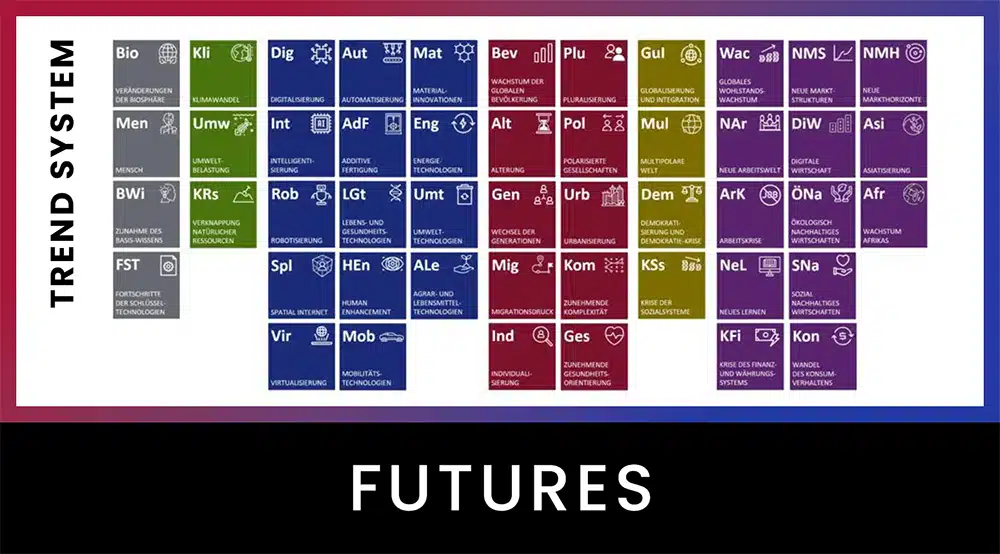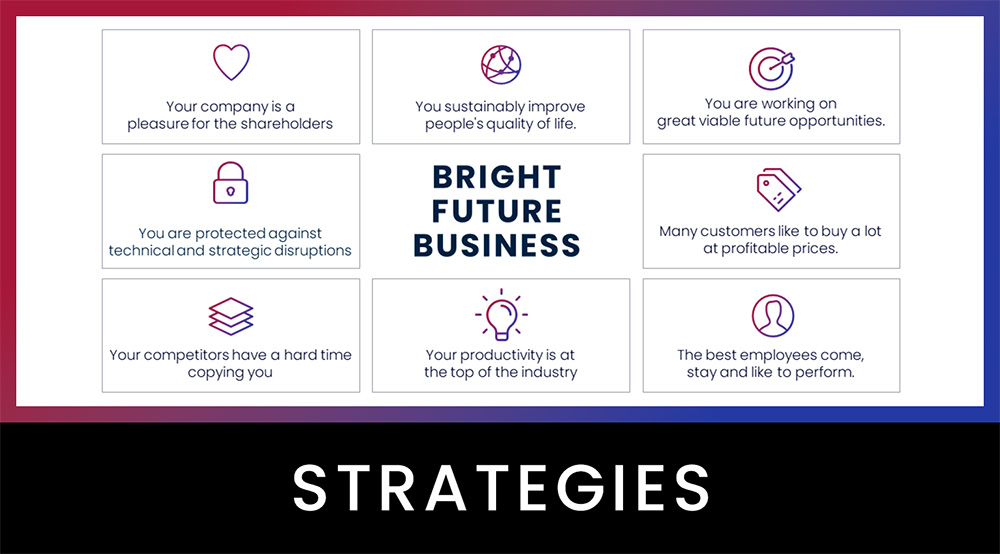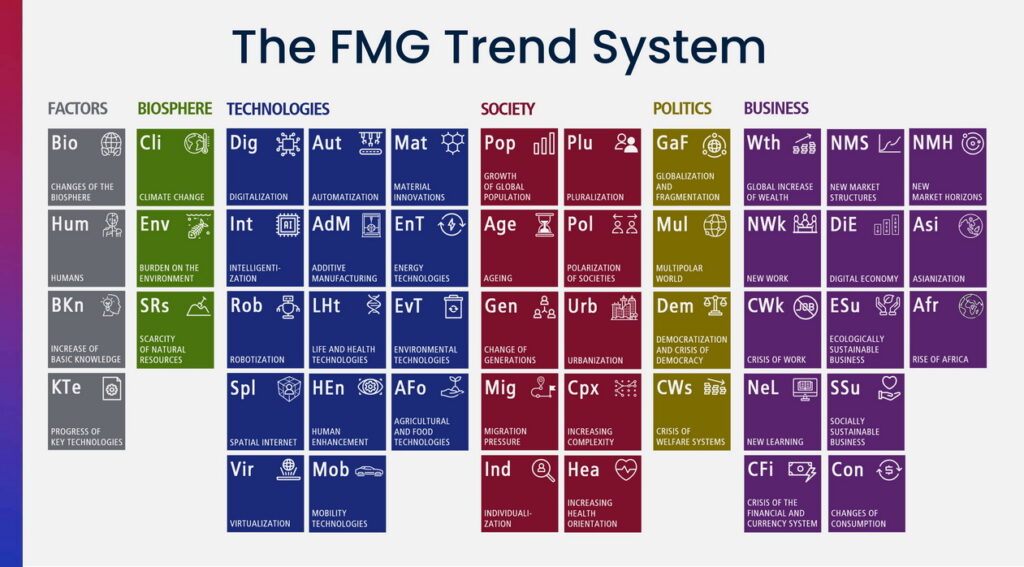Dr. Pero Mićić
What specific opportunities do you have in the crisis?
Crisis Opportunity No. 07: Make Your Skills Portfolio Future Robust
Your skills could become obsolete!
How much will your current skills and core competencies be worth in the future? Who will pay how much for your skills, for your ability? Are your skills at all future-proof? I mean you personally and I mean your company’s capabilities.
Many companies are very good at things today that won’t be needed in the future. Yours too?
The crisis is accelerating the processes of change. It will therefore make some of your skills obsolete faster than you can imagine and would like.
How future-proof are the capabilities of German automakers?
The core competence of the companies in the German automotive industry, building outstanding combustion engines, is virtually unrivaled. After all, well over a hundred years of experience have given us a head start that is almost impossible to catch. The Chinese recognized and acknowledged the unassailable nature of this German lead and therefore did not resist with all their might. No, they are instead strategically focusing on electric propulsion, which is drastically simpler and which, at least in broad terms, virtually anyone can build. They leapfrog.
In the future, the electric drive will also have ever greater advantages in terms of performance, environmental compatibility and cost – and yes, even in terms of driving pleasure. I assume (as you know) that in the developed countries of this world, virtually no one will buy a passenger car with an internal combustion engine in 2030. A few years later, this will also apply to trucks and ultimately to all vehicles. We in Europe and especially in Germany can then do something extremely well that is no longer needed!
The core competence of many companies is losing importance
Hundreds of thousands, if not millions, of people have spent their education and working lives with the internal combustion engine. They master the complexity of the more than 1,500 moving parts of an internal combustion engine to perfection. But with a good 20 moving parts of a battery electric drive, there is simply less to be able to do. In a comparatively short time, the skills of these many people will therefore dramatically lose value – and with them the core competence of many companies.
Converting production is already an enormous investment. But bringing so many people in their capacities from the old world to the new is an even greater and even more difficult challenge.
Software is not a core competence of German companies
And that’s not all. Customer-facing software has never been a particular focus for traditional automotive OEMs. At least not compared to Tesla, where software employs a very large proportion of the workforce. And likewise of value creation. Whereby the minimal marginal costs of software will also lead to the fact that it is precisely this that will earn the money in the future.
Even today, in the latest vehicles from German and European manufacturers, customer-side software is much more complicated and cumbersome than it needs to be. The user experience is therefore still less pleasant than interface designers are actually capable of today. And even more so in the future.
Do you still remember the N97 from Nokia from 2010? It was supposed to be the iPhone killer, but you could see the old thinking on the device. Nokia was unable to relearn for this reason even three years after the launch of the iPhone. The rest is well-known history.
Skills that are valuable today, the core competence your company stands for, can become almost worthless in just a few years
Please don’t think it’s just about these obviously vulnerable industries. Just as free Google Maps first destroyed the satnav market and then already significantly reduced the value of the skills of a cab driver who used to have the whole city in his head, it will continue with AI and self-driving cars.
As already stated in another article: Everything that humans can do cognitively, AI can already do today or will soon do better. And everything that humans can do physically, robots can do today, or will soon be able to do better. We are therefore facing a dramatic and radical change in the world of work: skills that are valuable today can become almost worthless in just a few years.
Early detection
Retooling an entire company takes time. Time you have only if you start early enough. And you can only start early enough if you look ahead to future developments, especially technical ones.
- CRISPR Cas9 will revolutionize medicine, agriculture and nutrition.
- Additive manufacturing, or 3D and 4D printing, will transform prosthetics and organ transplants.
- Artificial intelligence will dramatically improve consulting and training while making it cheaper.
Consistency in the realization
And the second prerequisite besides early detection is consistency in realization. But compared to the speed and agility of disruptive startups and also to Asian competitors, we have a cultural and thus very tough competitive disadvantage: In many respects, we are too cumbersome and too slow in this country. However, we will no longer be able to afford it. Or, instead, we will have to live with the loss of economic power and prosperity – should we fail to make our capabilities future-proof.
And now? Your task:
Take inventory of your company’s capabilities. Which, of course, is the sum of all your employees’ skills. The best way to do this is in tabular form.
Column 1: For what skills, for what ability are you actually paid today? One line per skill.
Column 2: Which types of artificial intelligence and/or robotics can take over which of these capabilities in the next few years?
Column 3: Are there other technologies that devalue these capabilities? If so, which ones?
Column 4: Which startups and scaleups already promise to deliver your services significantly better, easier or cheaper today?
Are your capabilities, is the core competence your company stands for, future-proof?
This gives you two types of findings:
First, you know which skills are better performed by technology than by you. You need to invest less in these human skills gradually, or perhaps even starting now (and more in substitutive technology), and instead help the people on your team acquire new future-robust skills.
And you then know, secondly, that the capabilities for which you have not found substitutive and disruptive technologies and business models, despite thorough research, are the capabilities that you, your team and your company will still need as people in the future. It is therefore important to invest in the development of these capabilities in a focused manner.
What do you think about the skills we really need for the future? Write to me about it! I look forward to hearing from you!
X
X
Placeholder
Please also follow these links:
► Free video crash course THE FUTURE OF YOUR BUSINESS
► BUSINESS WARGAMING for robust business and future opportunities
► LECTURES AND KEYNOTES by Pero Mićić for your employees and customers
Placeholder
I wish you a bright future!
Have a bright future!
Placeholder


































